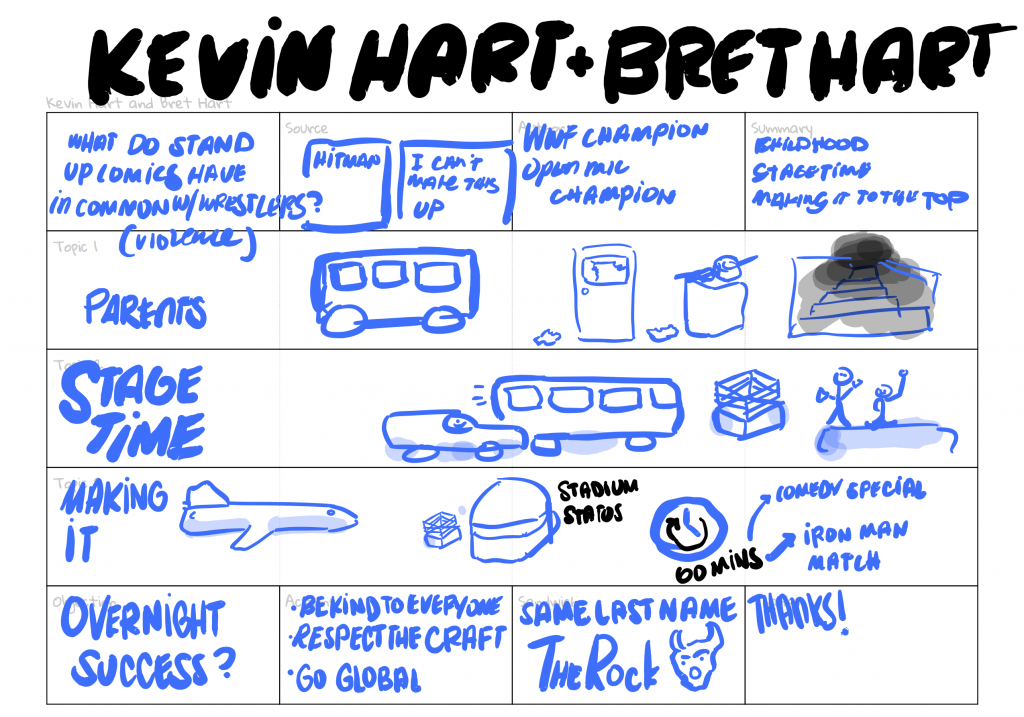This is an outline I made for a video I made: The Two Harts. It’s something I almost certainly wouldn’t have made if I didn’t wasn’t reading Bret and Kevin Hart’s biographies at about the same time. Here are some thoughts about making this video. I’m going to write more of these in the future so that I can improve in making these videos.
I go back and forth about how valuable it is to write about writing. This is a baby step removed. It’s writing about making videos.
- Good enough is good enough. I’ll learn more by moving on and making the next video. There are times to polish things over and over. Right now, good enough is good enough. This took about two hours to make from writing to outlining to drawing to grabbing clips and then recording and posting.
- What would this look like if it were easy? What parts of this took too long? Drawing the outline took longer than it would take to just write it out. There are parts here that aren’t as important. I can re-use the drawn outline though and it helped me think things through.
- Speed matters. Down the road, quality will mater more. Right now, quantity matters. I’ll learn more getting end-to-end reps with new videos than I will from trying to precisely edit the clips. I’ll start timing different stages of making the video so that I don’t get caught up working on things that don’t matter. Aka so I don’t get caught up browsing YouTube.
- What would I change next time? After finishing the video, it would’ve been better to have something that hints at The Rock at the end. That might be the only strong connection in the video. Everything else about career progression could probably be applied to just about any performer.



